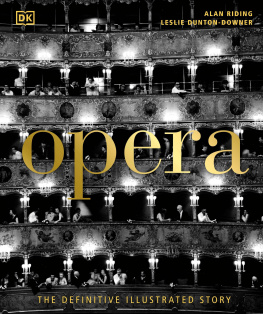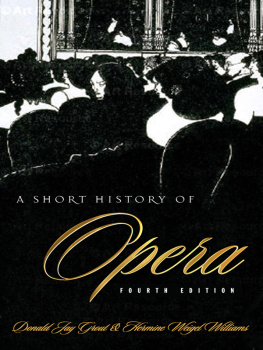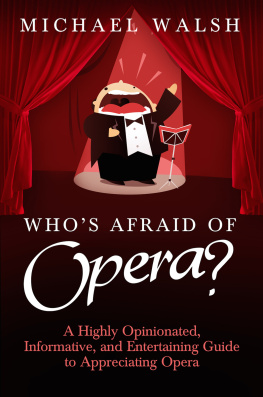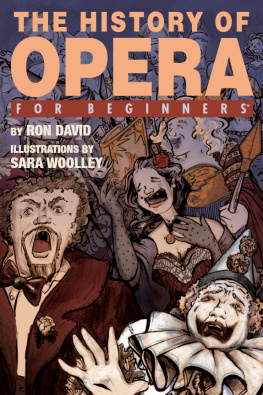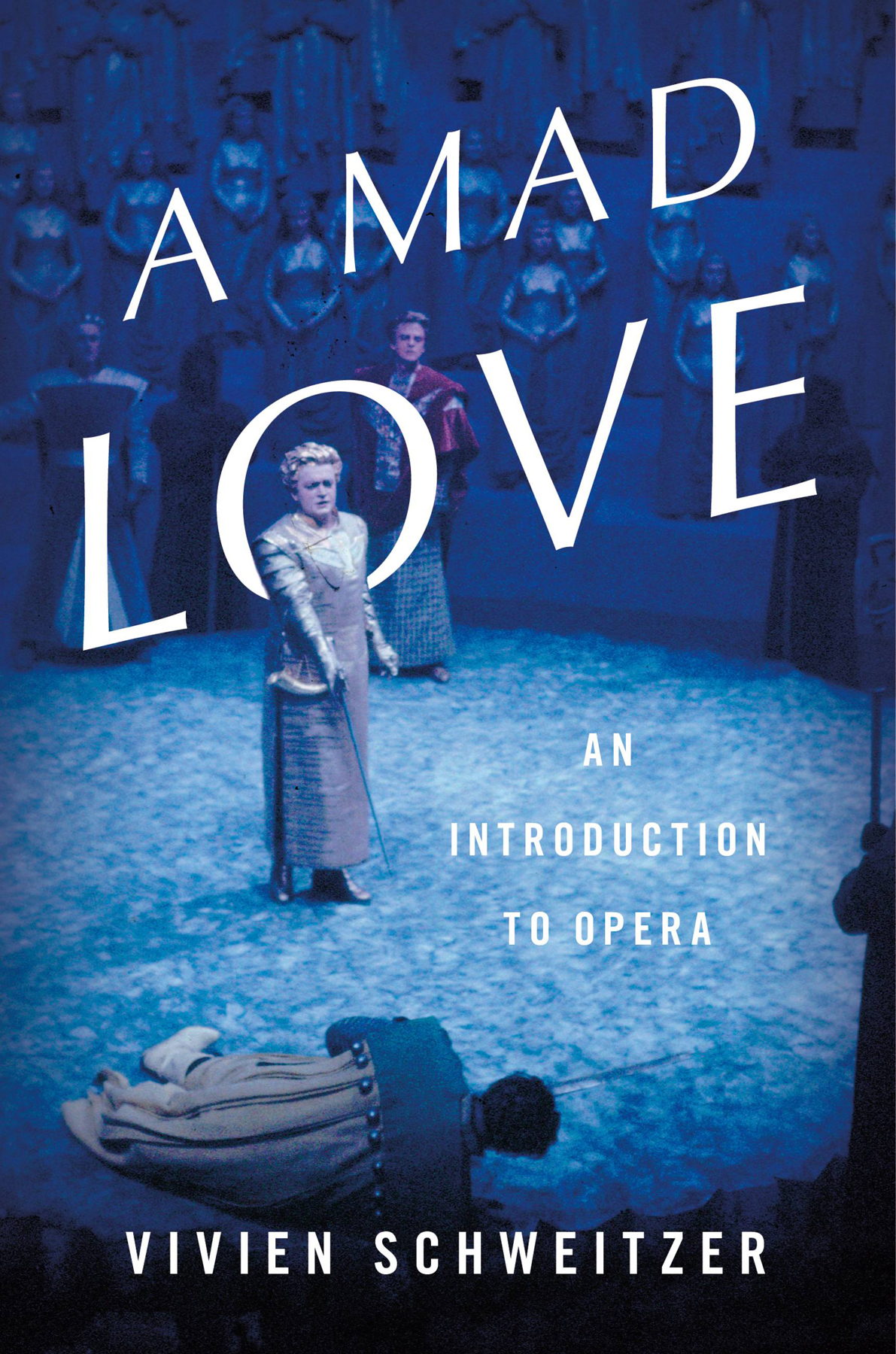Opera composers often spin out just a thought or two into expansive arias. Vivien Schweitzer does the opposite, deftly packing centuries of music and a profusion of astute observations into this lean delight of a book. If you think you might like opera, but have no idea where to start, the answer is: right here.
A lively and engaging introduction to an art form that belongs to us all, whether or not we know it yet. Welcome in.
Tim Page, Pulitzer Prizewinning critic and professor of music and journalism, University of Southern California
world-class singersthe most visceral thrill of opera. It seems there have never been more ways to experience opera, whether under the stars, under the chandeliers, or possibly, even, in a powder room near you.
Throughout history people have sung to express joy and sadness, and in opera, those emotions are magnified: live opera is a shared event that can be profoundly cathartic. Its often noted that opera, with its fantastical stories, requires a suspension of disbelief. The audience must accept that a heroine can sing passionately while dying of tuberculosis, or that people can fall in love a millisecond after meeting. As demonstrated by the success of Harry Potter, Star Wars, and Wonder Woman, however, contemporary audiences seem to have a healthy capacity to enjoy the unreal. In opera, no matter how unlikely a situation or fantastical a character, he or she represents very human frailties, desires, and emotions. The sorceress Alcina in Handels opera of the same name may perform impossible feats of magic, but this does not negate the truth of her emotions. Perhaps the only truly surreal aspect of opera is that an unamplified human voice can fill a large theater with an intensity that seems to have been conjured by a magicians wand. Ive been deeply moved while listening to Joyce DiDonato convey the despair of one of Handels heroines, and thrilled by Nina Stemmes hair-raising portrayal of the insane Elektra. Ive been awestruck by the virtuosity of the tenors Lawrence Brownlee and Javier Camarena, and by the way Vittorio Grigolos radiant voice so easily fills the cavernous space of the Metropolitan Opera House.
opera is not what it used to be. It is what it used to be. That is whats wrong with it. Or perhaps thats whats right with it. Its a golden age for opera, and whatever the indisputable glories of the past, there are many fantastic artists who are both superb singers and much better actors than their predecessors. The abundance of talent doesnt diminish the significant financial difficulties facing opera institutions of all sizes. Glass-half-empty observers have also noted the paucity of new works receiving premieres compared to past eras. But from a more optimistic perspective, its an exciting time, not only because of the gifted singing actors working today, but also because of the sheer diversity of repertory being presented. By the late twentieth century, the beauty of long-neglected operas by composers such as Monteverdi and Handel had been revealed by insightful scholars and musicians, and invariably theres an energetic artist or musicologist dusting off another obscure corner of the repertory for our enjoyment. In recent years there has also been a proliferation of small, adventurous opera companies offering high-quality productions and first-rate young singers. And although most composers arent churning out dozens of operas like some of their predecessors, despite the enormous creative and financial challenges of creating opera in the twenty-first century there have been some terrific recent works on topical subjects such as gay rights, terrorism, and the death penalty.
In order to fully appreciate operas by living composers, its essential to understand the four-hundred-year tradition behind them. Opera has been the entertainment of both the one percent and the masses, and the pendulum has swung both ways. Composers, musicians, academics, and moralists have debated whether opera should instruct, entertain, or move listeners, and just how it should go about doing so. Generations of composers have been criticized, censored, and fetedand sometimes all of the abovefor their musical depictions of love, madness, and death. Though no experience is necessary to admire the operatic voice or enjoy a popular opera like Carmen, to engage with opera on a deeper level and fully appreciate what youre seeing and hearing, its vital to understand operas history, styles, and performance traditions.
I wrote my first (unpublished) opera review at age fifteen, after seeing a performance of Strausss Arabella at the Royal Opera House in London, with the soprano Kiri Te Kanawa in the title role. I recently rediscovered this youthful assessment, in which I described Te Kanawa as magnificent and the orchestra excellent, albeit occasionally a tad loud because I couldnt hear the singers. I was also impressed with the singer performing the role of Arabellas brother, who, I noted in the review, is really a girl. I wasnt then familiar with the gender-bending elements inherent to much opera, or with the concept of a trouser role, in which women sing the roles of young men.
If you simply want to know the definitions of opera terminologysuch as trouser role, or opera seria, or coloraturathe answers are of course only a Google search away. Instead of offering a comprehensive survey of operas or complete, detailed synopses, I have aimed to embed the fundamentals of the Western operatic tradition in a narrative context to show how composers have used different techniques and voices to create sung drama. To understand why its a strange directorial choice in the twenty-first century to cast a baritone as Handels Giulio Cesare, for example, you need to know about the evolution and categorization of voice types. To appreciate how a directors staging of


